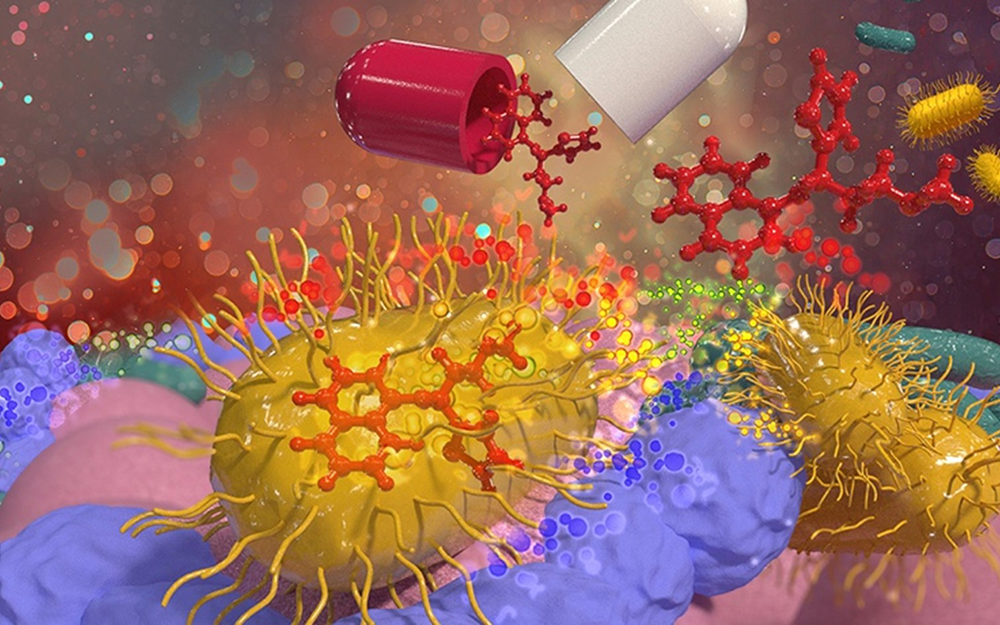
A vast population of bacteria, fungi, protozoa, and viruses live inside our bodies. The microbiome includes as many cells as the human body and encodes 100 times more genetic material than the human genome. Up to 1,000 different species of bacteria live in the gut alone.
Studies are now being advanced to study how microbiota plays a huge role in obesity, cancer, and neurodegenerative disorders such as Parkinson’s and Alzheimer’s disease.
Research has shown the impact on our gut microbiome through not only exercise and certain pharmaceuticals but also the consumption of cannabis, all via the common path of the Endocannabinoid System (ECS). In 2010. A Belgian team researched the gut microbiome of obese mice through prebiotics, foods that promote the growth of beneficial bacteria, and altered ECS expression in fat tissue with implications for lipid metabolism and fat cell formation (shown here).
Canadian researchers found gut microbiome health in animals on a high-fat diet improved after 3 to 4 weeks of a daily regimen of tetrahydrocannabinol (THC). Researchers in another study found key differences among 19 lifetime users and 20 non-users. Cannabis users possessed bacteria populations associated with higher caloric intake but lower BMI.
The microbiomes of HIV-positive individuals who used cannabis were associated with a decreased abundance of two strains of bacteria linked to obesity. Plant cannabinoids, including THC and cannabidiol (CBD), may modify and improve microbiome health. The body’s own endocannabinoids, anandamide, and 2-AG, influence the microbiome when stimulated through exercise and certain food diets.
The University of South Carolina is pioneering investigations into the ECS, the gut microbiome, and disease. It may even have found a clue for treating one of the most harmful complications of COVID-19. Administering THC to mice affected with a form of acute respiratory distress syndrome (ARDS) could stop the condition in its tracks. A severe consequence of the runaway immune response known as a cytokine storm occurs in a small percentage of COVID-19 patients but is often fatal.
Prakash Nagarkatti’s studies on mice show suppressing inflammation in the colon and systemically is critical for preventing any type of disease. Now, inflammation is considered to be the underlying cause of everything, not only autoimmune disease but cardiovascular and neurodegenerative diseases, PTSD, Alzheimer’s, obesity, cancers, and COVID-19. Will these studies be transferable to humans and for COVID-19 is unknown now?
Almost daily in the literature, we see new things that link the gut to bodily health: gut-heart connections, gut-lung connections, and gut-kidney connections. Type “probiotics” into Google and you’ll find over 198,000,000 search results and an infinite scroll of probiotic products promising to “fix”, “rebalance”, “restore”, or “reset”. And though the science of probiotics is one of the most exciting and rapidly growing research areas, most “probiotics” and probiotic products (especially in the US) are not grounded in science. So, in addition to navigating the already challenging “biotic” landscape (probiotics, synbiotics, postbiotics), you are expected to discern those touting “science-backed” from actual science.
The developers of DS-01® Daily Synbiotic is one probiotic that comprises 24 scientifically validated probiotic strains with a patented, non-fermenting prebiotic. This breakthrough formulation combines innovations in probiotic stabilization and a precision-release system to deliver strains to the lower small intestine to support systemic benefits, including digestive, heart, skin, and gut health.
Their 2-in-1 nested capsule safeguards viability through digestion for delivery of an average of 100% of their probiotic starting dose to your colon. The outer capsule also serves as a barrier to oxygen, moisture, and heat—no refrigeration necessary. Who knew taking probiotic supplements would be so complicated? I would rather just take my daily dose of cannabis. How about you?
Send comments to hilruth@gmail.com.









































